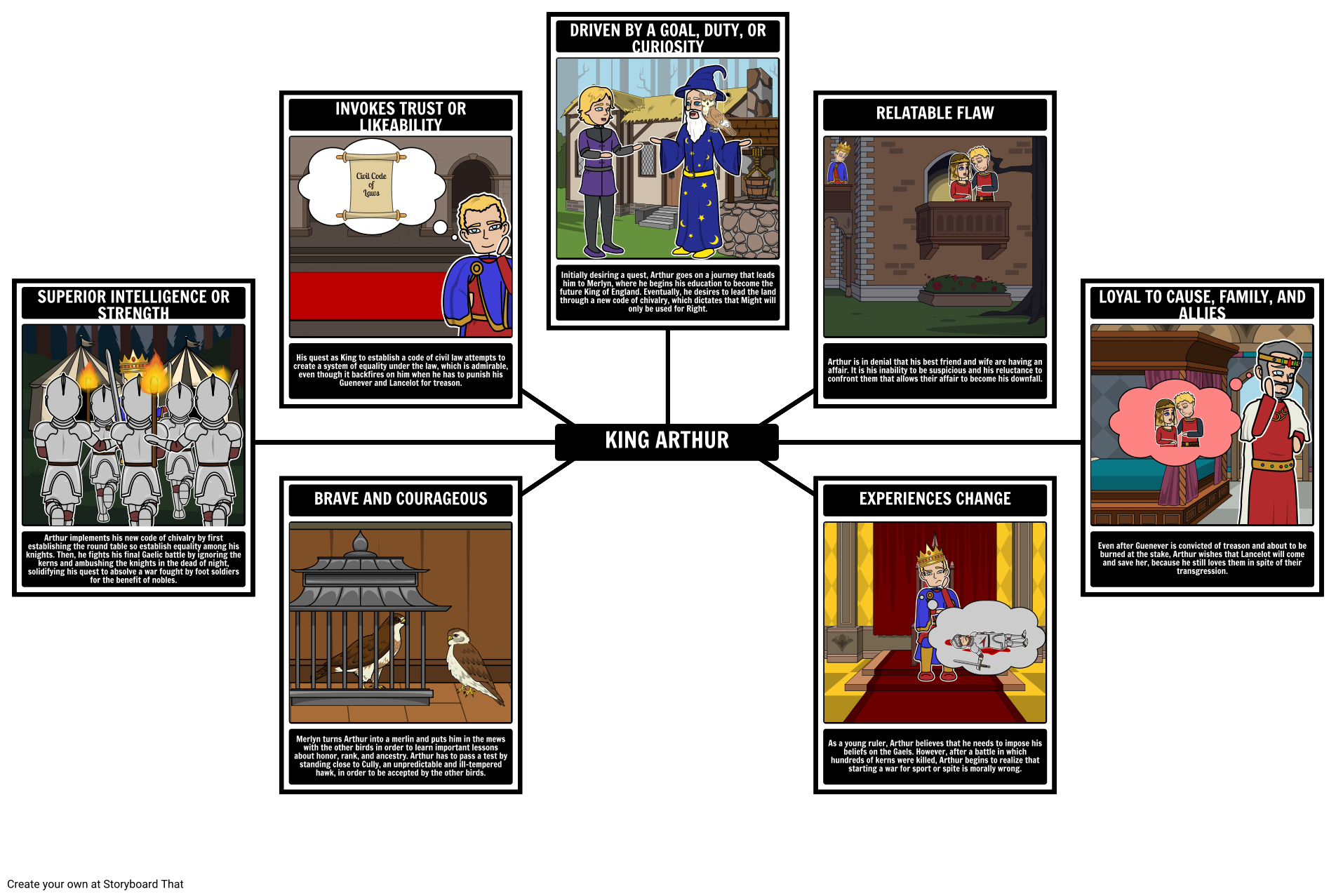Protagonist Analysis for The Once and Future King

Описание на Статията
protagonist vs antagonist - Protagonist Analysis for The Once and Future King main character
Текст на Статията
- INVOKES TRUST OR LIKEABILITY
- Civil Code of Laws
- DRIVEN BY A GOAL, DUTY, OR CURIOSITY
- RELATABLE FLAW
- SUPERIOR INTELLIGENCE OR STRENGTH
- His quest as King to establish a code of civil law attempts to create a system of equality under the law, which is admirable, even though it backfires on him when he has to punish his Guenever and Lancelot for treason.
- Initially desiring a quest, Arthur goes on a journey that leads him to Merlyn, where he begins his education to become the future King of England. Eventually, he desires to lead the land through a new code of chivalry, which dictates that Might will only be used for Right.
- Arthur is in denial that his best friend and wife are having an affair. It is his inability to be suspicious and his reluctance to confront them that allows their affair to become his downfall.
- LOYAL TO CAUSE, FAMILY, AND ALLIES
- Arthur implements his new code of chivalry by first establishing the round table so establish equality among his knights. Then, he fights his final Gaelic battle by ignoring the kerns and ambushing the knights in the dead of night, solidifying his quest to absolve a war fought by foot soldiers for the benefit of nobles.
- BRAVE AND COURAGEOUS
- KING ARTHUR
- EXPERIENCES CHANGE
- Even after Guenever is convicted of treason and about to be burned at the stake, Arthur wishes that Lancelot will come and save her, because he still loves them in spite of their transgression.
- Merlyn turns Arthur into a merlin and puts him in the mews with the other birds in order to learn important lessons about honor, rank, and ancestry. Arthur has to pass a test by standing close to Cully, an unpredictable and ill-tempered hawk, in order to be accepted by the other birds.
- As a young ruler, Arthur believes that he needs to impose his beliefs on the Gaels. However, after a battle in which hundreds of kerns were killed, Arthur begins to realize that starting a war for sport or spite is morally wrong.
Над 30 милиона създадени разкадровки

